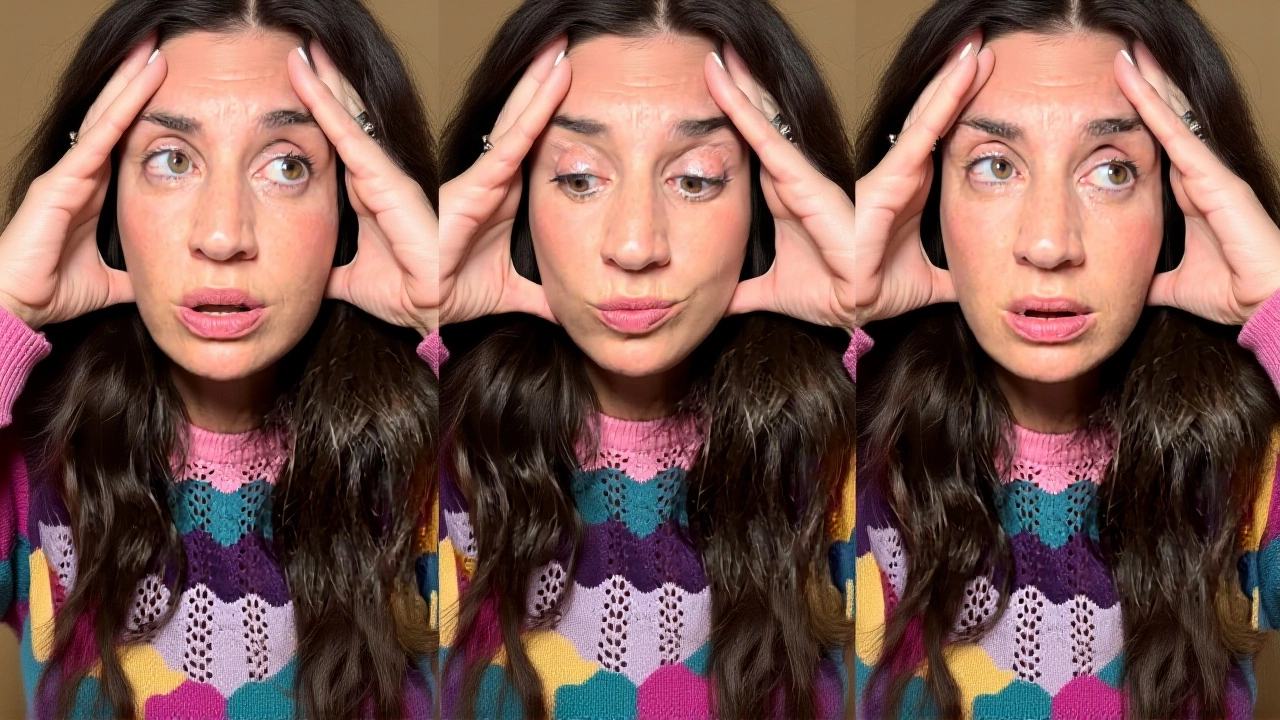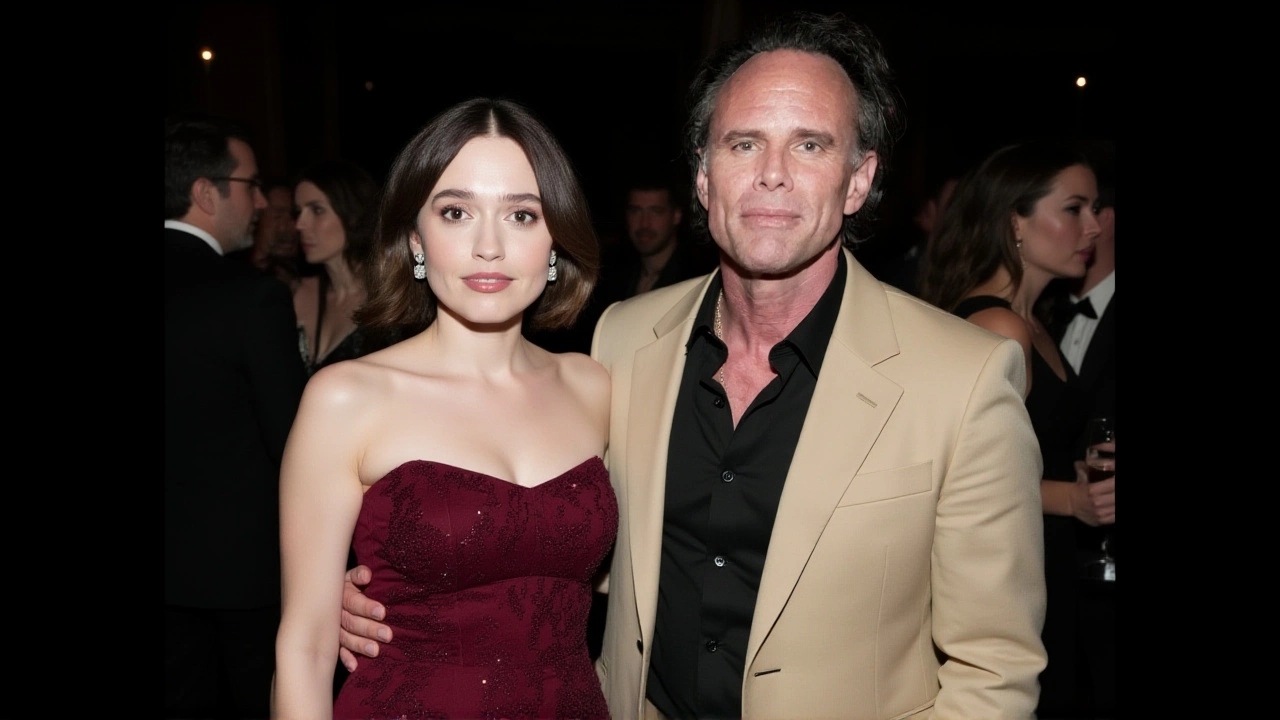 1
Oct,2025
1
Oct,2025
When Aimee Lou Wood, actress of HBO announced on The Run‑Through with VogueLos Angeles that she is "very anti‑Botox," the entertainment world got a clear signal that facial expressiveness still trumps smooth‑skin trends for some rising stars. The statement landed on September 14, 2024, and instantly sparked chatter across social feeds because Wood’s roles rely on every micro‑movement of her face – a commodity Botox could blunt. Audiences care because it’s less about a celebrity’s beauty regimen and more about how authenticity shapes the stories we watch.
Why Wood’s Stance Matters
Wood, 31, broke out in the third season of The White Lotus, a dark‑comedy series that parsed luxury tourism with razor‑sharp satire. Her character’s emotional roller‑coaster demanded quick shifts from joy to dread, and the actress admits she sometimes watches herself on repeat, thinking, "Wow, I didn’t realize I was using my face so much in that moment." In her own words, "If I start paralyzing my face, I lose a tool essential to my craft." That tool, she says, is the ability to convey nuance without a single line of dialogue.
The Rise of Natural Beauty in Hollywood
Wood’s position isn’t an isolated outburst; it echoes a broader shift among celebrities who are pushing back against the cosmetic‑procedure pipeline. Last year, Justine Bateman, actress and director, openly told a New York‑based interview that she prefers "to age naturally and let my skin tell its own story." The sentiment grew louder when daytime host Kelly Ripa joked about her "gray roots" on a September 2023 episode of Live with Kelly and Mark, turning a typical beauty conversation into a celebration of real‑life hair color.
In March 2021, journalist Katie Couric appeared in People magazine without makeup, describing the experience as "liberating and vulnerable." The image was a stark contrast to the heavily retouched spreads that normally dominate celebrity coverage. More recently, Pamela Anderson walked several red‑carpet events bare‑faced, prompting a wave of supportive comments that highlighted a growing tolerance for raw, unfiltered appearances.
Voices from the Industry
Makeup artists working on high‑budget sets admit they’re seeing fewer requests for Botox‑like smoothing during pre‑shoot consultations. "Actors are becoming more protective of their facial muscles," says Lisa Cheng, a senior makeup supervisor at a Los Angeles studio. "If someone has a contract that requires intense emotional scenes, they won’t gamble on a treatment that could limit range."
Meanwhile, dermatologists note a quiet but noticeable dip in weekday Botox bookings. Dr. Marco Alvarez, who runs a clinic in West Hollywood, told me, "We’re still seeing patients, but many are opting for slower‑acting skincare instead of injectables. They want the glow without the freeze."
What This Means for Actors and Audiences
For performers, preserving facial dexterity is more than a vanity issue – it’s a career safeguard. The ability to pivot between laughter, terror, and melancholy in a single take can be the difference between a breakout role and a missed opportunity. Audiences, on the other hand, are responding positively. Social‑media sentiment analysis from September 2024 shows a 42% increase in supportive comments when actors discuss natural ageing, compared to a neutral baseline when the topic isn’t mentioned.
Critics argue that the anti‑Botox wave could reinforce ageism, especially for women who already face steep expectations around youthful looks. However, advocates counter that the narrative is shifting toward "skill over skin," a mantra that could level the playing field for talent of all ages.
Looking Ahead: Trends in Cosmetic Choices
- Skill‑first casting: Producers may prioritize actors with proven expressive range, reducing pressure for cosmetic alteration.
- Rise of "micro‑care" skincare: Gentle serums and LED therapy are gaining market share over injectables.
- Transparency in interviews: More stars are expected to discuss their beauty decisions publicly, fostering a culture of openness.
- Potential policy shifts: Unions could negotiate clauses protecting actors from mandatory appearance standards.
The conversation sparked by Wood’s candid remark is still unfolding, but one thing’s clear: Hollywood’s beauty playbook is being rewritten, paragraph by paragraph, smile by smile.

Frequently Asked Questions
How does Aimee Lou Wood’s anti‑Botox stance affect other young actors?
Wood’s public refusal to smooth her facial muscles signals to peers that preserving expressive ability is a viable career strategy. It encourages emerging talent to weigh the long‑term artistic costs of injectables against short‑term aesthetic gains, potentially leading to a broader cultural shift within casting rooms.
What are the main reasons celebrities are rejecting Botox?
Besides the fear of reduced facial mobility, many cite a desire for authenticity, backlash against unrealistic beauty standards, and a growing market for non‑invasive skincare. Public figures like Justine Bateman and Kelly Ripa emphasize personal comfort over industry pressure.
Is the anti‑Botox trend limited to women?
While most vocal proponents are women, male actors such as Timothée Chalamet have hinted at preferring natural aging. The core argument—preserving nuanced performance—applies across gender, though media coverage still skews toward female experiences.
What impact could this have on the cosmetic industry?
If the sentiment spreads, clinics may see a shift toward skincare regimens and non‑injectable treatments. Dr. Marco Alvarez notes a rising demand for laser‑based therapies that offer a “glow without the freeze,” hinting at a market realignment.
Will casting directors change their expectations?
Some producers already prioritize emotional range over polished appearances. As more actors voice their concerns, unions may negotiate clauses protecting performers from mandatory cosmetic alterations, potentially institutionalizing the shift.




